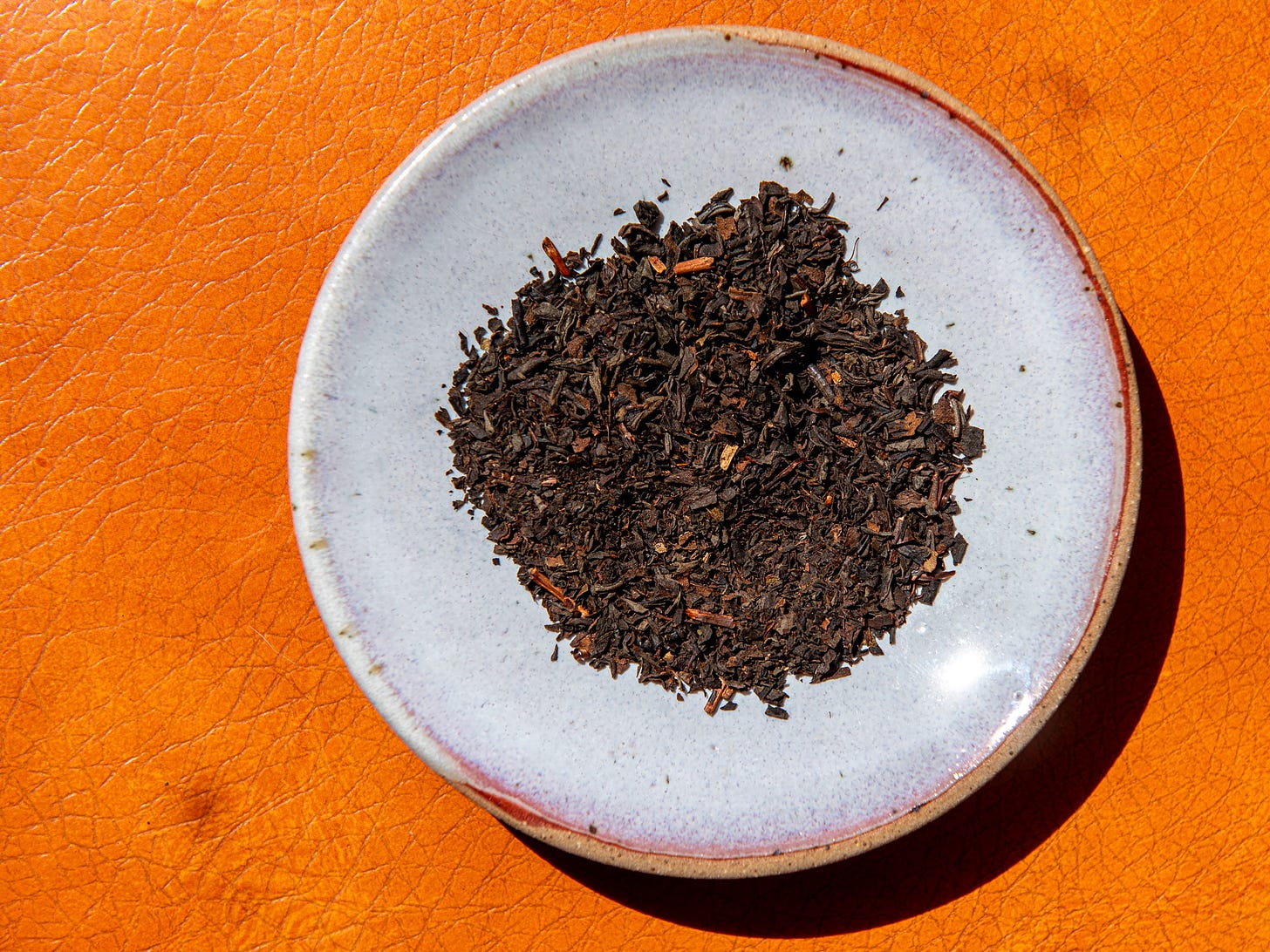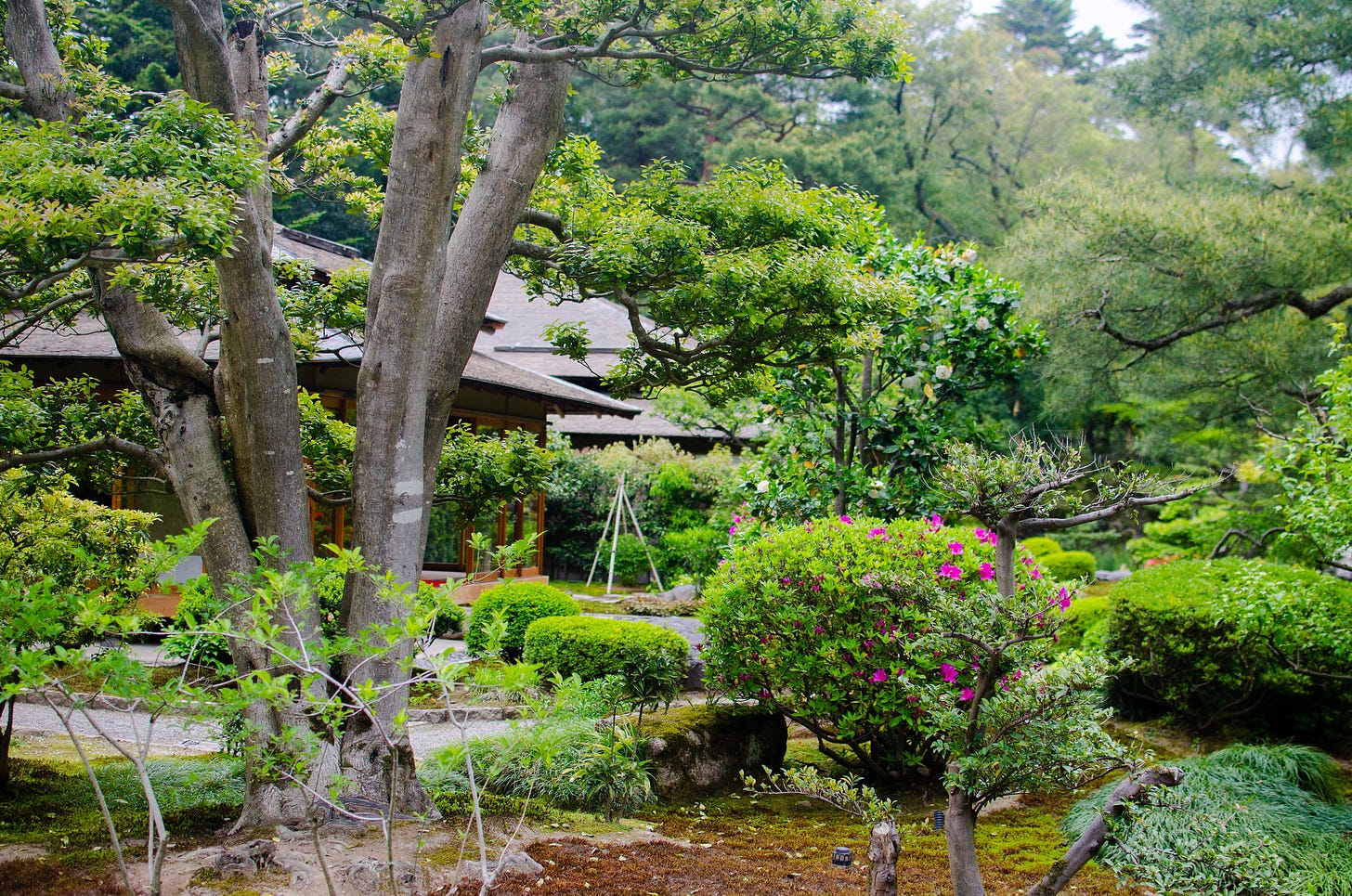About that matcha shortage
Chocolatey black tea from Japan + alternatives to the prized powder.
Congrats to the winners of Leafhopper’s tea auction!
And a sincere thank you to everyone who placed bids and spread the word. Together, winning bidders have donated $675 to abortion access and trans healthcare in Kentucky. Even better, the National Network of Abortion Funds is currently matching donations, doubling your impact to $1,350. The way my sample box is going, we’ll likely have another tea auction in the months ahead, so stay tuned.
Cuckoo for wakoucha
The tea: Wakoucha Mariko black tea, sold by Den’s Tea. $20.50 for 2oz.
Black tea accounts for a small fraction of Japanese production, but if you’re a fan of chocolate notes and a silky texture, it’s worth investigating. Especially now—good black tea in Japan is only getting better. This batch is made with leaves from the Benifuuki cultivar, which is a hybrid of Darjeeling and Chinese plants introduced in 1993. The cultivar is known for its rich aromatics and mellow flavor. These attributes have made it a popular choice for smooth black teas that are typically lighter and less astringent than orthodox styles.
Last week I talked about kill green, the heating process that shuts down oxidizing enzymes in tea leaves. In most tea regions, kill green is preceded by a withering stage that reduces water in the leaves while developing subtle floral flavors. Japanese green teas tend to skip this withering stage, which is part of why they taste so intensely green. However Japanese black teas, called (wa)ko(u)cha, do undergo this withering step. Here is a good opportunity to taste what oxidation does to Japanese leaf material. The tea has a nice balance of floral, fruity, and malty notes that complement a comfortable cocoa character.
The source: Den’s Tea is the North American arm of Shirakata-Denshiro Shoten, a Japanese tea producer and distributor that began in 1923. It’s a family business; current president Den Masanori Shirakata is the grandson of the founder. They offer a wide range of Japanese tea styles from matcha to bancha, along with less common black and oolong teas as well as some fermented varieties. They’re also one of the few sources for this little ceramic tea roaster that I love. Sprinkle some green tea in the dish, light a tea candle beneath it, and your whole house will smell of gently roasted tea.
To brew: Tea leaves in small sample pouches can get broken up through transport and handling, and you’ll see mine are pretty fine. But even the product photo on the Den’s Tea website shows a broken leaf grade of tea, so this one benefits from a light touch to keep it from oversteeping. Try 3 grams in a 150 milliliter pot (1g/50ml) with boiling water. Steep 30 to 40 seconds to drink it as-is; brew for a minute if you plan to add milk, which wouldn’t be a crime here. Resteep once or twice for just 20 seconds. The body is light with a hint of sweet depth at the back of the mouth, and the lush chocolate vibe can transform into tangy raw cacao with longer brews. An intriguing collision of Chinese and orthodox black tea vibes.
What to drink while waiting for the matcha mill
In case you hadn’t heard, the world has gone crazy for matcha. So much so that Japanese producers can’t keep up with demand. Leaves for matcha can only be grown at certain times of year. They need skilled workers and dedicated facilities to process them into looseleaf tea. The stone mills used to grind matcha yield just 30 grams of powder an hour. This is not a commodity that’s easy to scale. Zach Mangan of Kettl has a great newsletter series with lots of inside baseball on the subject that I recommend checking out.
It’s precisely these complications that make matcha compelling to drink. The powdered green tea is palatable because of the seasonality, shading, and aggressive fertilization that precede harvest. If you ground an average green tea into powder like matcha, it’d look olive drab in the cup and taste tannic and bitter. Were the grinding more haphazard, perhaps sped up with faster steel mills, the powder would lose much of its flavor and health benefits and it wouldn’t suspend so neatly in water and milk.
Opportunists have certainly tried to simplify the process. As reputable matcha manufacturers are forced to turn away customers, sellers of whatever random ground green tea are happy to pounce. There’s a lot of imitation matcha made in China for a fraction of Japanese prices. Some of it is fine for what it is, a lot of it isn’t. It’s not that Chinese producers can’t make good powdered tea—the whole practice of powdered tea started in China, after all—but matcha necessitates an entire industry of specialists that isn’t easy to boot up overseas. Engagement-bait videos of matcha butter steak aren’t helping.
Keep reading with a 7-day free trial
Subscribe to Leafhopper to keep reading this post and get 7 days of free access to the full post archives.







